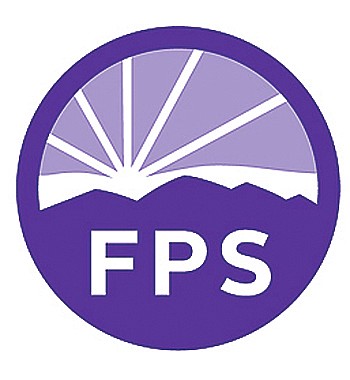FAYETTEVILLE -- Technology is an integral part of course planning for junior high and high school students.
With the rollout of a student records management system, called e-School Plus, course registration and credit recordkeeping is no longer a massive paper and pencil job, a school official said.
AT A GLANCE (w/logo)
Parent Teacher Meetings
Fayetteville parents can visit with one of 16 Career and Academic Planning advisers from 3:45-7:45 p.m. on a first come, first served basis Tuesday and Thursday in the cafeteria. Teachers will be in their classrooms for conferences on a drop-in basis the same evenings.
Source: Fayetteville High School
Students said it speeds up a boring or tedious job. One parent expressed concern the process takes the parent out of the course and career planning equation.
The Career and Academic Plan process has been a rite of spring for years. Students decided which courses to take, then met with their parents and an advisor to discuss classes in relation to career plans.
This year much of the process is transferred to a computer.
As Regina Williams said, a person can find out most anything on the Internet. That's now true of getting her granddaughter enrolled in the eighth grade in Fayetteville, as well as her courses planned for the next five years.
Students said they still get the advice of teachers, and they talk to their parents about their selections.
But the process is faster, smoother and less tedious.
"It's way, way simpler and less stressful than last year," said 16-year-old Caitlyn Wells.
"There's not as much paperwork," added Tyson Morris, 15. Both students are sophomores.
"It also pulls kids more into the process because they can do it on their phone," Wells said. "And paperwork does get boring,"
Now that all the course requests are in, the process begins to build a schedule for next year.
"The goal is to give students their schedule before the summer," said Deanna Easton, director of the small learning communities at Fayetteville High School. "It takes weeks to put together a master schedule. There are lots of layers to it."
Sophomores and juniors will stay in the small learning community they are assigned, Easton said. Incoming sophomores will be assigned a community based on the courses they choose, especially the electives, as well as a survey of their interests and what careers might be tied to those courses.
The idea behind the communities is to break the size of the high school into manageable parts. About 1,900 students are at the high school. Freshmen will move to the high school in 2015.
All school districts have some process to help students with enrollment and course selection. Some are using e-School this year. Others, such as Springdale, will implement the online format next year, said Pete Joenks, Springdale High School principal.
Bentonville also uses the Career and Academic Plan process to start advising incoming freshmen about courses available at Bentonville High School to meet their goals as well as hosting programs to get parents involved in the process.
Students go to the course catalogue online and choose courses. Athletic and graduation requirements, electives, course and waiver requirements and career placement information are available on the website.
Fayetteville parents have to sign a form online agreeing to the course selection. They can meet with a teacher on a first-come, first-served basis Tuesday and Thursday in the school commons. Gone are face-to-face meetings for all parents.
The online signature is a way for parents to say, "I approve and I won't be at the CAP conference," Easton said. "It's most important that students and parents are having the conversation."
Joenks doubts his district will forgo parent involvement in course planning.
The effort can be streamlined and made more efficient with technology, but parent involvement is at the heart of the process, Joenks said. He estimated 95 percent to 98 percent of parents attend the meetings with teachers.
"We won't change the philosophy. We still want parental involvement," Joenks said. With the information online, students and parents likely can have better discussions at home, Joenks said.
Kathleen Riggs, a counselor at Rogers High School, said students there and at Heritage High School follow a similar routine in their advisory periods, which are similar to homerooms. The students stay in the same advisory class, with the same teacher, all four years of high school. Teachers work with their students to plan their courses throughout high school.
Both schools also have a night when eighth-graders visit the school to learn more about classes, clubs and athletics. The events include meetings for parents, Riggs said.
Debbie Power, co-president at Fayetteville High School Parent Teacher Student Organization, said the online version kind of takes it out of the hands of parents but the students have the advising period and counselors to help.
"Online saves man hours and works very well. It is good for parents whose kids are on track. Not so much for students who aren't on track to graduation. Those parents are out of the loop," Power said. "Ultimately, it is up to the counselor to make sure that each student is on track."
Williams said the process gets students as young as her granddaughter to think about postsecondary education.
"They are honing in on preparing students, not just for high school but for college," Williams said. "In eighth grade, it doesn't necessarily mean you know what you want to do. It's choosing courses that will help students in life.
"All in all, the program is to prepare students to enter college or trade school and not think of a high school diploma as the end," Williams said.
NW News on 03/29/2014

